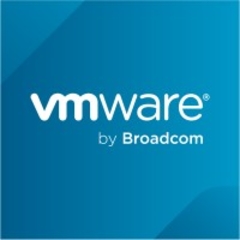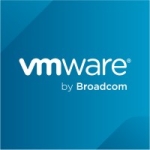What is our primary use case?
Our clients use VMware Cloud Foundation for SDDC implementations. When it comes to data centers, traditionally, data center infrastructure components are standalone systems, like blade servers or rack servers sitting inside a rack.
But with a software-defined data center (SDDC), you buy a larger hardware component from a vendor like HP, Dell, Nutanix, etc., and then virtualize that hardware to create a pool of VMs, storage, and other resources.
This concept isn't confined to just compute and storage. You extend this understanding and capability to your network (e.g., software-defined SD-WAN or software-defined networks) and backup (e.g., software-defined backup running on backup appliances like HP StoreOnce).
You define backup policies through software, specifying which VMs need to be backed up, how often, and the backup retention period. That's how we technically sell these software-defined data center concepts to our customers.
Another thing to consider with data centers is power consumption, which is directly related to the hardware configuration running in the data center. The capacity and power consumption of the hardware you buy from HP, Dell, Nutanix, Cisco, etc., affects your operating costs. Imagine kilowatts of power running over a period of years, so it's a significant cost factor. So, it's not just about the technical capacity but also the power consumption, which is a major discussion point.
How has it helped my organization?
VMware Cloud Foundation (VCF) simplified hybrid cloud integration. In the current environment, most customers have their applications and infrastructure running both in data centers and public clouds, like AWS and Azure.
VCF brings the capability of having a private cloud solution on-premises that offers a similar experience to what hyperscalers' public clouds provide. This means everything is software-defined, whether it's compute, storage, network, etcetera. We can define a pool of resources and segregate those resources with a click of a mouse through software-defined business tools and policies.
What is most valuable?
VMware Cloud Foundation provides us with the vSphere dashboard through which we can manage, monitor, schedule, and spin up your virtual machines. We can manage, monitor, and get reports of your infrastructure.
It gives you a very beautiful display on the vSphere dashboard, which you can use to configure and generate reports. And, with the vSphere dashboard, you also have your monitoring tools integrated with them.
So, for example, if you have x number of servers running in your capacity, your monitoring tools, like Logic Monitor and SolarWinds, can also be integrated into the system to generate reports and ensure you're keeping a tab on the infrastructure capacity, health, and any potential issues that might come up in the customer's environment.
So, the integration of the monitoring tools in the VMware vSphere dashboard itself is one of those features that customers like very much.
Secondly, you can schedule certain VMs from the vSphere dashboard itself.
Customers are quite interested in the capabilities within the VMware Cloud Foundation (VCF) layer that allow for spinning up and scheduling virtual machines in a customer's environment, essentially forming a private cloud. This scheduling capability enables us to power down non-critical, non-production virtual machines, which is a key aspect of managing a private cloud where your critical applications run.
Unlike the constant operation of all virtual machines, the software-defined data center concept allows for cost optimization similar to what we see with hyperscalers like Azure, AWS, and GCP.
With VMware VCF Services, customers can manage their VMs efficiently, ensuring cost optimization and benefiting from the private cloud's value in reducing spend and achieving faster time to market. It also supports interoperability among various monitoring tools a customer might have.
Moreover, VMware stands out in cloud computing by providing top-notch virtualization software and cloud foundation services. However, customers often inquire about 'as a service' model offerings from System Integrators (SIs) like us, where infrastructure is consumed on a pay-as-you-go basis, mimicking the billing model of public clouds. This is where vendors such as United Layer come into play.
Additionally, there are offerings from the likes of HPE and from Dell, like Dell Apex, which cater to specific needs in the cloud financial services sector. When preparing material for customers regarding their private cloud requirements, I consider offerings from OEM vendors and companies like Nutanix, which, despite being primarily a software company, partners with OEMs to tailor the foundation to specific hardware needs. They also offer their hypervisor layer, AHV (Acropolis Hypervisor), enhancing their position in the competitive infrastructure as a service (IaaS) market.
The competition is fierce in the on-premise private cloud foundation space, not to mention the public cloud sector, which often overshadows discussions about on-premise private cloud solutions. The market is filled with competitors vying to offer the most efficient, cost-effective solutions.
VMware remains a clear market leader due to its comprehensive portfolio and wide range of virtualization options. VMware has evolved to meet cloud migration needs, particularly for customers moving to AWS.
VMware's collaboration with AWS allows for seamless rehosting of VMware virtual machines on AWS, requiring minimal customization.
What needs improvement?
Cost is a big factor. Clients want a reduced price. Ease of use is definitely there – the VMware interface is user-friendly. But cost is a challenge when convincing clients, especially for large deals. They understand the value proposition of VMware's reliability, and they're willing to pay a premium for it as long as it's guaranteed in writing.
Clients signing multi-million dollar deals are primarily concerned with reliability. They're willing to pay a premium for a guaranteed level of reliability that's spelled out in the agreement. If they pay a significant amount and we can't convince them of the solution's reliability, then it won't be a successful implementation.
Buyer's Guide
VMware Cloud Foundation
January 2026
Learn what your peers think about VMware Cloud Foundation. Get advice and tips from experienced pros sharing their opinions. Updated: January 2026.
882,103 professionals have used our research since 2012.
For how long have I used the solution?
I have been using it for the last ten years.
What do I think about the stability of the solution?
I would rate the stability a nine out of ten, with one being low stability and ten being high.
What do I think about the scalability of the solution?
Enterprise-level businesses use VMware Cloud Foundation.
I would rate the scalability a ten out of ten. Scalability is the USP of VMware. It offers both horizontal scaling and vertical scaling.
Which solution did I use previously and why did I switch?
With VMware Solution, I work with VMware vCenter, VMware vSphere, and VMware Cloud Foundation services.
VMware vSphere and VMware Cloud Foundation (VCF) are among the key products I've worked with.
VMware products are key for virtualization and setting up on-premise private cloud infrastructure.
How was the initial setup?
The initial setup is pretty straightforward. While explaining the features to clients, I always emphasize how easy it is to use and manage.
Automated deployment, particularly through VMware Cloud Foundation (VCF), significantly enhances operational efficiency.
Within this organization I'm working on, we've developed multiple automation scripts that help you deploy with a click of a button. For example, for OS hardening or to spin up a virtual machine. First, you need your code your scripts to spin up the VM. Then, you need the OS image, whether it's Windows or Linux.
So we've developed a lot of scripts internally, from hardening the OS to spinning it up, attaching storage, and even taking snapshots of VMs.
All these are automated features within VMware Cloud Foundation, and all happen with a click of a button. You just need the script ready, customize it based on customer requirements, and deploy an environment, create VMs, and set up an SDR facility between two availability zones to manage VMs in case of disaster or failover. The traffic on the primary VM should divert to the secondary, and once the primary recovers, it should fail back to the primary node.
So, VMware Cloud Foundation helps manage virtual machines in case of disasters or failovers. During a failover, traffic gets diverted from the primary virtual machine to the secondary one. Once the primary recovers, the traffic gets switched back.
Most clients with critical applications aim for five nines of availability. That means minimal downtime – ideally less than five minutes per year. The clients might be interested in RPO (Recovery Point Objective) or a highly available disaster recovery scenario.
In conclusion, VMware Cloud Foundation offers a lot of automation capabilities. We have pre-written scripts that our engineers use to automate tasks like provisioning VMs, scheduling deployments, and patching systems. It's all very user-friendly.
What other advice do I have?
I would definitely recommend using this solution.
Overall, I will rate this solution a nine out of ten.
Disclosure: My company has a business relationship with this vendor other than being a customer. Integrator


















